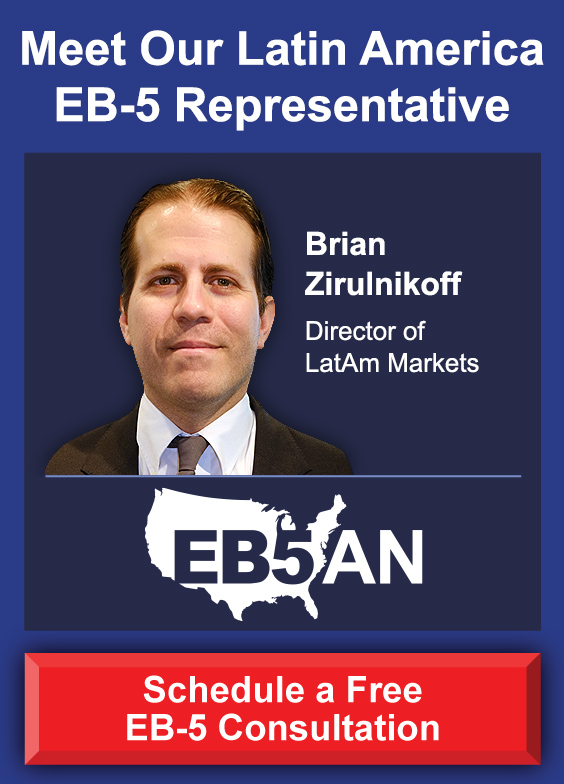
For many interested EB-5 investors, the dream of U.S. permanent residency through the program is challenged by the amount of investment needed; a minimum of $800,000.
Luckily, the EB-5 program allows investors to use loans and gifts to fund their investments, making it easier for those who may not have the full amount available from the start.
However, the use of loans and gifts in EB-5 investments is no simple matter. The United States Citizenship and Immigration Services (USCIS) has established strict requirements and guidelines to ensure the loaned or gifted funds are of lawful source.
Investors must do much documentation and due diligence to show compliance with USCIS rules, and protect their eligibility for a U.S. Green Card.
In this article, we explore how loans and gifts can be used for EB-5 investments, explaining the requirements, processes, and key considerations for each option.
How Loans Work With EB-5

EB-5 investors can use loans to fund their EB-5 investment, as long as the loan is secured by the investor’s personal assets. This is a common practice, but there are some key requirements and considerations that investors must be aware of so they don’t break USCIS rules.
Some common types of loans:
- Property loans secured by the investor’s owned real estate.
- Shareholder loans secured by the investor’s ownership in a company.
- Business loans secured by the investor’s business assets.
- Unsecured loans.
To prove a loan, the loan must be properly documented with a written agreement that clearly explains its terms and conditions. This agreement should specify the loan amount, interest rate, repayment terms, and the collateral securing the loan if applicable. Additionally, evidence must be provided to show the investor’s ownership and the value of the collateral assets, such as property or stock documents. It’s also necessary to include source of funds documents to demonstrate that the collateral assets used to secure the loan were obtained legally.
Pros of Using Loans
- Allows investors to participate in the EB-5 program without selling existing assets.
- In some cases, interest paid on the loan may be tax deductible. However, potential tax benefits depend on local tax laws and should be discussed with a tax advisor.
- In case of successful investments, the repayment of the loan may come from the returns generated by the EB-5 investment, making it a self-financing option.
Cons of Using Loans
- Adds complexity to the EB-5 process, requiring additional documentation.
- May increase the overall costs of the EB-5 investment due to interest payments on the loan, which can impact the net return on investment.
- Involves the risk of losing the collateral assets if the investor is unable to repay the loan, which could have significant financial consequences.
How Gifts Work With EB-5

EB-5 investors can use gifted funds for their investment, which has recently become more and more common (i.e., parents gifting money to their children studying in the U.S.) However, gifted funds come with their own set of requirements and considerations that investors must navigate carefully.
To prove a gift, it must be properly documented with a written gift letter that establishes the nature of the gift and the relationship between the parties. The letter should clearly state the gifted amount, the parties involved (donor and recipient), and confirm that no repayment is expected or required. Source of funds documentation from the gift donor is required to prove the lawful origin of the gifted funds. For source of funds purposes, the gift donor is treated as if they were the EB-5 investor, meaning their financial background will also be investigated.
Pros of Using Gifts
- May simplify the EB-5 process compared to loans.
- No expectation of repayment or interest cost associated with the gifted funds.
- May have tax advantages depending on the region and applicable gift tax laws.
Cons of Using Gifts
- Extensive documentation is required from the gift donor, including source of funds evidence.
- May trigger gift tax consequences in certain situations, depending on the amount of the gift and the applicable tax laws in the relevant jurisdictions.
Loans, Gifts, and Your EB-5 Journey

When utilizing loans or gifts for an EB-5 investment, investors should remember that all EB-5 investment funds, regardless of their source, must be lawfully obtained and properly documented to meet USCIS requirements. Loans must be secured by the investor’s personal assets, such as real estate, business ownership, or other valuable property, and cannot be secured by the assets of a third party, like a parent or spouse.
Gifted funds can come from any party, not just family members, as long as the gift is documented and the source of the funds is clearly proven. Gift donors and loan collateral assets will be investigated closely.
Engaging an experienced EB-5 immigration attorney is essential to ensure proper handling of the loan and gift documentation processes and compliance with all legal requirements. Seeking guidance from experienced industry professionals can also be of great help.
Book a free consultation with EB5AN to get started.











